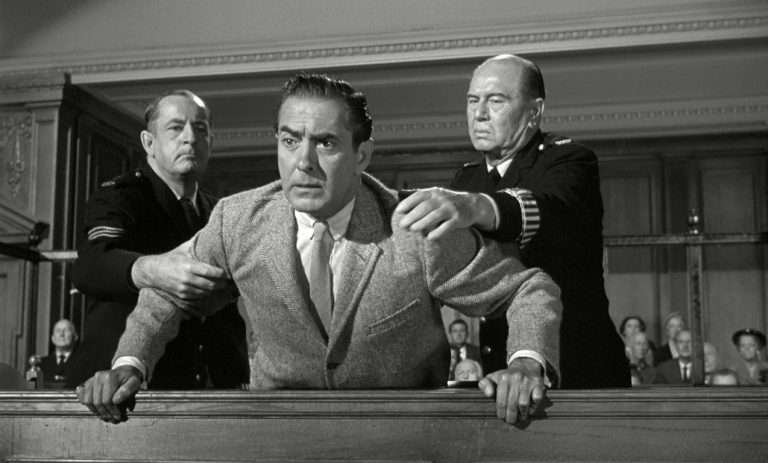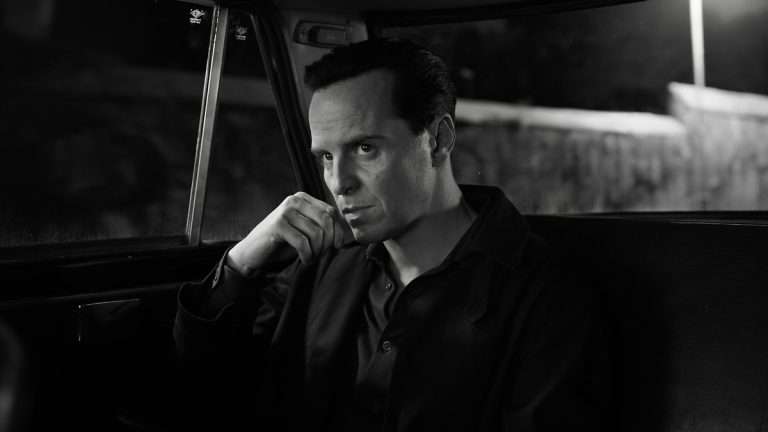Iranian cinema seems to enthuse itself. Even after decades of “New Wave” Iranian films first touching the Western shores, they refuse to wash their hands off their precise domesticity that made their cinema exhilarating in the first place. Their ideas and processes remain inventive and composite. Iranian filmmakers have never been befuddled by the enigmatic and supernova glamour of Hollywood. And, Asghar Farhadi is one such filmmaker.
Born in 1972, his childhood was engulfed by the political upheaval of the time. When the 1979 revolution brought down the centuries-old Persian monarchy, the insecure Saddam Hussein, fearing a similar uprising in Iraq, instigated a war on Iran, which would persist for 8 years. Farhadi’s city and nearby areas were barraged ad nauseam. One day, Farhadi’s eldest brother ran away to join the army’s volunteer forces and didn’t return from school. Though finally, after months, Farhadi’s parents located him and brought him home. This incident inflamed strong patriotic feelings in Farhadi, and he often wished that one day, he could join too. But Farhadi got interested in cinema, eventually.
If Majid Majidi single-handedly forced the world (especially the West) to bow down to the virtuosity of Iranian cinema, Asghar Farhadi makes sure, heads remain bowed in reverence. His films are mostly a study of the inexorable impediments that are triggered by class, politics, gender, and religious divides. They are a microcosm of contemporary Iran.
With 8 feature films so far, he has won 29 local and international awards, including Oscars & a Golden Globe. He is in the prestigious, exclusive club of 5 filmmakers who have won the Oscar for Best Foreign Language Film, more than once! Yeah, you can take Farhadi’s name apace with Federico Fellini, Vittorio De Sica, Ingmar Bergman, René Clément, and Akira Kurosawa.
So, here’s my attempt to rank every Asghar Farhadi film so far:
9. EVERYBODY KNOWS (2018)
So, out of all his subversive movies, Farhadi’s latest offering, Everybody Knows, is my least preferred. Not because it’s a bad film by any stretch of the imagination, but there is something muddled in the storytelling, and more so, in its writing. This film is a slender digression for Farhadi, preeminently, because it’s entirely in Spanish. Secondly, here he is working with legit, international gigantic stars like Penelope Cruz, and Javier Bardem, something unprecedented for him so far. And this shift turned out to be a woefully gnarled ride, at least for me.
Laura (Penelope Cruz) is traveling with her teenage daughter, Irene (Carla Campra), to her home-town in Spain, to attend a wedding. It’s pleasant carousing with family & friends, including former lover Paco (Javier Bardem), now also married. But soon, this merrymaking witnessed a sea of change when Irene gets kidnapped, followed by a ransom demand. Everyone is a suspect as their past collides, and a can of worms pops open.
Farhadi, calls his style of working, a kind of ‘magnetism’, he first gets an idea, a spark, and then he weaves the web around it, one thread at a time. And once that one idea mutates into a form, he constructs an emotional, humane journey around it. The spark of Everybody Knows, first lit up when Farhadi was on a family trip to Spain, more than 15 years ago. His daughter saw a missing girl’s photo on the wall in a street, who was kidnapped. She remained perpetually scared throughout the trip. This incident stayed with him for long and finally found an outlet in 2018 with Everybody Knows.
Though on the face of it, it is a crime-thriller, but like every other Farhadi film, this also remains effectively about human associations and the convolutions of their interactions. Bardem & Cruz’s talent and overwhelming charm are on glowing display, and the ensemble cast is first-rate too. Farhadi, fashions choreographed chaos with a carefully designed script. And the film ends up being just that, too careful. The unhurried pace doesn’t let the script achieve the greatness it was aiming for.
The writing feels desperate and emphasizes a melodramatic soap-opera approach. The big reveals are more goopy than gutsy, and the film ends up going nowhere, which is embarrassing, considering the proportion of talent and experience exhibited here.
But, let me travel back to my jumping-off point, it is not a bad film per se, it’s just flawed. There’s a lot to admire here. The sublime performances, intense character studies, marvelous production design, and the splashing cinematography by José Luis Alcaine almost manages to distract you from Farhadi’s weary architecture.
The scenes are genuinely stimulating in isolation. But when they come together, the steam vaporizes. The deficiencies hit harder here because EVERYBODY KNOWS, Asghar Farhadi is capable of doing much better.
Watch it on TubiTV
Similar to Asghar Farhadi Movies – Everybody Knows [2018] Review: A Rare Misfire From Asghar Farhadi
8. DANCING IN THE DUST (2003)
This was Farhadi’s directorial feature debut, after co-writing the screenplay for Ebrahim Hatamikia’s Low Heights in 2002. Dancing In The Dust, is an unpolished gem, so to speak. There are chances that the narrative might not speak to you, but remember, it’s the dawn of dexterity. So be patient.
The film follows two outcasts, a silent old man and a loudmouthed youth. When forced to divorce his wife because of his family because her mother is a prostitute, Nazar slaves away to repay the loan he took for his wedding. When his efforts fall short, he escapes the police and ends up in the desert with an old man. The two are forced to coexist, catching snakes, to make enough money from their venom to survive. The snakes are as volatile and minacious as our two protagonists’ motives.
Honestly, the story doesn’t have the fluency to wave you through it, but it’s an absorbing character study of inversely mirrored dispositions of two men. With a blemished past and fragile present, their best and worst instincts are stripped naked for the audience. Both men are doomed by love. We see their backstories, and unfortunately, they feel like two different fabrics, forcefully stitched together for an intricate costume. Their stories never cross paths, and feel disjointed.
With Dancing In The Dust, Farhadi mustered enough critical support, for its theme of love, and sacrifice. The final, rewarding twist, in the end, would patently expiate the shortcomings. But it ends up being underwhelming, vis-à-vis most of Asghar Farhadi’s films.
Performances are poignant. Yousef Khodaparast augments Nazar with intense originality and annoying idiosyncrasies. Whereas, Faramaraz Gharibian’s (playing the old man) internal desolation haunts you, even though he barely speaks in the film. His face is the map of his crippling journey. Farhadi brought out a lot of physicality through these two men.
Since it was his maiden attempt, the moral complexities, and conflicts often appear more manipulative and poseuse, than requisite. But, Farhadi’s control over his craft, manages to provide a riveting experience with a promise of greater things to come from his legacy.
Related to Asghar Farhadi Movies – The 10 Best Iranian Movies Post Iranian Revolution (1990s)
7. BEAUTIFUL CITY (2004)
Farhadi’s films rarely discuss political themes upfront. His films are embedded in the personal and operate on moral convolutions. He has largely avoided being at loggerheads with the Iranian government. And that makes Beautiful City, extra special. He skims over political clouds here but never pierces them enough for thundershowers. To methodically enjoy the film, you might need familiarity with the Iranian legal system and its implementations. But this speck of impediment is not an encumbrance, at any level, for you to get involved in the potency of the narrative.
The film is a melancholy drama about the aftermath of a senseless murder, vengeance, and the labyrinthine judicial procedure. Akbar is in prison for killing his girlfriend when he was 16. Now, since he is 18, it’s time to carry out his execution. His best friend is A’la, also in the juvenile center for petty crimes. Being unable to accept his friend’s fate, A’la, is desperately seeking the plaintiff’s (then girlfriend’s father) consent to stop the execution. He also asks for assistance from Akbar’s sister, a feisty single mother. What unfolds is a masterclass of screenplay writing.
Beautiful City, is an engrossing, smartly written, sociological commentary on blood money, gender inequality, forgiveness, and sacrifice. It makes for a transfixing human drama. Farhadi’s script is evolving, and never loses grip. There are scenes that will seize your mind, long after the film is over. He instantly constructs a world that is kinetic, and diverse. Farhadi pollinates a rather eccentric outline with a troubled romance, and the result is a stone-cold masterpiece.
The performances are so powerful that they even threaten to overshadow Farhadi’s direction. Taraneh Alidoosti as Akbar’s sister, Firoozeh, delivers a towering showpiece in acting. Babak Ansari as A’la and Hossein Farzi-Zadeh as Akbar are raw, vanity-free, and add dimensions to their already layered characters. And Faramarz Gharibian is a legend. He plays the dead girlfriend’s father, and the intensity on his face includes him in the list of those rare actors who don’t need dialogues to communicate on screen.
My only exegesis of this highly effective film is that it’s visually quotidian. The visual syntax of the film feels like any other Iranian film, which, sort of, dismantled the structure a bit. But the hope and dignity of the film reimburse every paucity. Farhadi’s Beautiful City is an easy film about the potential of forgiveness.
Similar to Asghar Farhadi Movies – The 5 Best Marion Cotillard Movies
6. THE PAST (2013)
The constant running theme in all of Asghar Farhadi’s films (in some capacity or the other) is family relationships. It’s universal around the world; hence his films are totally accessible. The Past is no different. Like all of his other films, this one also dawned upon him with a memory. Before he made his third film, Fireworks Wednesday (2006), Farhadi’s friend told him that he is going out of the country to stay with his ex-wife, for the completion of their impending divorce. Farhadi found this construct to be very dramatic in nature. He calls these memories or sparks, a “password to access the unconscious treasure house”.
Ahmad (Ali Mosaffa), returns to Paris from Tehran to finalize divorce procedures with his estranged French wife, Marie (Bérénice Bejo). They have been separated for four years, and now she wants to marry her new boyfriend Samir (Tahar Rahim). This would be her third, and Samir’s second marriage. During Ahmad’s stay with her, he discovers multiple conflicts. Farhadi, choreographs his viewers into this false sense of a family drama, involving a potential love triangle, but soon it takes an about-face, and turns into a gripping mysterious web, unveiling secrets from everyone’s past. It’s highly stimulating to experience a family drama framed as a ‘whodunnit’.
The Past shares its DNA with its predecessor, A Separation (2011). Both are about divorces and the complications that ensue. But, The Past, discernibly becomes far less political and local as it is set in Paris. Farhadi toys with a diverse climate here as women live differently in Paris, with specific intricacies. And since the action here is driven by Marie, shifting ground to Paris makes sense. Her two divorces and a potential third marriage would have scandalized Farhadi’s native country.
Farhadi’s script is constantly unfolding and explores the past that forms us. And as we progress, the writing becomes exceedingly as haunting as the past of our central characters. Having said that, the writing might not be as awe-inspiring as A Separation, but ultimately just as beguiling.
Bérénice Bejo as Marie, steals the show from the men involved. Farhadi knits a composite mare’s nest from Marie’s volatile past, and Bejo just flies with the material in hand. Bejo is an Oscar-nominated (for The Artist, 2011), gorgeous, and overwhelmingly gifted actor, who received the much deserved 2013 Cannes Film Festival prize for Best Actress for The Past.
Essential mention to the film’s final haunting scene, it resituated the entire film with a breezy, effortless simplicity. No spoilers here but watch it to further acknowledge Farhadi’s genius!
Related to Asghar Farhadi Movies – The 75 Best Movies of the Decade (the 2010s)
5. FIREWORKS WEDNESDAY (2006)
Iranian cinema was just an immediate reaction to Hollywood and European counterparts. But eventually, it became a cultural phenomenon. And Farhadi’s work has a lot to contribute. His narrative is not cinema-vérité realistic but it’s not outwardly significant either. His films uncoil unerring memories of people’s life’s metamorphic episodes and demonstrate Farhadi’s astute capabilities of varnishing varied shades of prosaic lives and evoke colorful unique drama. And Fireworks Wednesday is exactly that.
This profound, pint-sized film operates as a cultural introduction to Iran. The title refers to the Iranian New Year and its celebration with fireworks and bonfires the evening before. Asghar Farhadi co-wrote the script with fellow director Mani Haghighi (Pig, 2018). The film deals with marital infidelity, explored through the eyes of a young, soon-to-be-married housemaid, Rouhi (Taraneh Alidoosti). The housewife, Mozhdeh Samiei (Hedye Tehrani) offers Rouhi, free services at a local salon as a gift to her engagement news. But, she has an ulterior motive. She wants Rouhi to overhear the discussions at the salon to verify suspicions that her wealthy husband, Morteza Samiei (Hamid Farokhnezhad), is having an affair. And, in an ill-judged and naive attempt to pull through Samiei’s dangling marriage, Rouhi unknowingly ends up pushing the couple over the edge.
As more layers of the couple’s wobbling marriage peel off, Rouhi’s sanguine view of marriage, and humanity, is bluntly bruised. Farhadi keeps the film at a beautiful pace and engineers a psychologically serpentine yet tender drama. From this film onwards, Farhadi decided to not use music, or rather a sparse use of it, in his films. He finds music a highly synthetic tool for his kind of naturalistic cinema.
Farhadi defines Fireworks Wednesday as “a film about human beings in conflict – a day in their existence that is fraught with tension”. And the tragedy is not maneuvered through the good vs. bad conflict. Instead, it’s born out of the disruption between two forms of good. He says it’s a repercussion of our complex and difficult modern times.
Taraneh Alidoosti as Rouhi is a revelation. She achieves her arc from a cheerful, optimistic, trusting girl to her lost sense of security, distrust, and delusional view on marriage, with a quiet, fluent visual grammar. And, she was just 22 at the time. This was the first of many fertile collaborations with Farhadi and her, others including About Elly (2008), and The Salesman (2016).
Honestly, the top 5 Asghar Farhadi’s films on this list, can easily trade positions because each one is a masterpiece, and an institution in writing, direction, and acting.
Watch it on Kanopy
Related to Asghar Farhadi Movies – FIREWORKS WEDNESDAY [2006] Review: DOUBT & REMORSE
4. A HERO (2021)
Themes of A Hero started to bubble in Farhadi’s mind from his student days, back in the 90s. While at university in Tehran in the early ’90s, he had seen the Bertolt Brecht play, “Life of Galileo”. He was particularly affected by the definition of a hero in that play, and that idea has stayed with him ever since, which finally took form in 2021!
Rahim is in prison because of a debt he was unable to repay. During a two-day leave, he tries to convince his creditor to withdraw his complaint against the payment of part of the sum; however, things don’t go as planned. To say his life changed in these two days would be a massive understatement.
Farhadi treats his characters as archaeologists, who keep digging, and dusting off the information in the script, for the world to wonder. Rahim (the instantly likable Amir Jadidi), is an incredibly passive character. Every decision he takes is either suggested to him or has been taken by someone else for him, mostly by women in the film. This, Farhadi says, is the new Iran. To the outside world, women in Iran are subjugated, oppressed, but in reality, men are becoming more unassertive, and since women have so many restrictions, they are taking active decisions these days, to navigate their chained lives.
A Hero operates on moral complexity, and the world’s definition and expectations of a hero. As most of his films do, A Hero also commences with a small snowball, running down the mountain. But as it keeps falling down the slope, it gets bigger & destroys everything that comes in its way.
Although, culturally, it’s a very specific film, yet resonates with global social situations. It’s time we change the lens of scanning our heroes & heroism.
Watch it on Prime Video
Related to Asghar Farhadi Movies Ranked – Why A Hero (2021) is Farhadi’s Close-Up; An Analysis of Farhadi’s Filmmaking Mechanics!
3. A SEPARATION (2011)
A Separation is Farhadi’s Children of Heaven (1997). It instantly transported him across international waters and got Iran its first Oscar for Best Foreign Language Film. This is Farhadi’s piece de resistance. It became a sensation all over the world and won 45 international awards, most for any Iranian film. And the film was in the top 3 of every single “Best Film of the Year” list of 2011.
A Separation, follows the story of a couple, Simin (Leila Hatami) and Nader (Peyman Maadi). Simin’s decision to leave Iran for a better future for their daughter deranged their formerly harmonious lives. Nader is a traditionalist and wants to remain. He also has an ailing father, suffering from Alzheimer’s, to take care of. Simin is even ready to divorce Nader if needed. While she goes back to her parents’ house, Nader hires help, Razieh (Sareh Bayat) to take care of the house. The denouement of the entire furor is a class, cultural, and religious clash between the people involved, and around. There are some family secrets too to unravel. And ultimately, it becomes a tense courtroom drama.
Like every Farhadi film, A Separation’s seed is also germinated from a real-life conversation where his brother narrated an incident to him, about taking care of their grandfather, who had Alzheimer’s. One day, his brother brought him to the bathroom and started washing him. And because of the tragedy of the moment, because of how sorry he felt for him, he hugged the grandfather and cried. Farhadi’s genius mind wheels started to churn out. This moment between these two men triggered the whole script for him.
Asghar Farhadi carefully manages the narrative with utter sensitivity and grace. The insightful whisk of aspiration, anger, agony, and anxiety has been portrayed through poignant direction and gorgeous performances. No glance, no movement, and no silence is irrelevant. Very rarely have I experienced a film where not a single shot or scene or motive feels redundant.
Both the conflicting characters chronicle their view of things, in the courtroom, directly to the camera. The camera represents a judge you can hear but not see. And, Farhadi never let this tool feel gimmicky; it registers as an extension of the audience. Almost like they’re the judge of things here, literally and metaphorically.
The ingenuity of A Separation lies in the fact that the film expands with every viewing into something greater. And, that’s by Farhadi’s design, not incidental. Simply put, you cannot afford to miss this jewel, even if you are not an Asghar Farhadi fan.
Watch it on Amazon Prime
Also Related to Asghar Farhadi Films – 10 Incredible Foreign Films on Amazon Prime Video
2. ABOUT ELLY (2009)
Okay, so placing About Elly above A Separation doesn’t make either any less than or better. My inclination towards About Elly functions purely on its re-watch value, more than anything else.
Asghar Farhadi’s work has slowly but steadily become better known as his career progressed. His fame has expanded from domestic to cosmopolitan since 2011. But he has been hinting at his genius for years, the world pretended to be oblivious to it, and needed an Oscar win to acknowledge it.
Asghar Farhadi has always been extremely interested in the moral ambiguities of society, and About Elly, reiterates that. Once again, he got the idea of the film from one visual he remembered from when he was a kid. He saw a guy, facing the sea, wearing a trench coat, and his clothes were wet. He was just watching the sea. Farhadi couldn’t remember when and where he saw that man, but that image stayed with him for years. So he got curious about who is by the sea and why his clothes were wet. If he just came out of the sea, why didn’t he take off his clothes? Is it because his wife drowned in the sea and he couldn’t save her? He thought about it again and again, and this was just a starting point; the story itself existed.
Deceivingly, the film starts off as a basic ensemble piece, where a matchmaking attempt goes wrong. The kindergarten teacher, Elly, was invited by a kid’s mother to a three-day group vacation with friends. She wanted one of her divorced friends to get to know Elly, for a potential love, and eventual marriage. But Elly disappears without a trace during the vacation, and suddenly the festive atmosphere turns frantic and tensed, with mutual accusations, conflicting social obligations, compassion, and fear of disgrace.
Farhadi, withholds the information through his writing and narrative until the suspense is excruciating. He never lets you breathe or cry or even shout, you are perpetually transfixed with the events that are unfolding in front of you. His usage of space, gifts About Elly, a visual aesthetic that remains unprecedented in his vibrant and powerful résumé.
Thematically, Farhadi’s masterpiece has the residue of 1959 Italian marvel L’Avventura. But, Farhadi colored it with such intense nativity, and concentration that this comparison simply adds to the brilliance of About Elly. The film is more about navigating the agency of betrayal and deceit than about Elly’s disappearance. The narrative structure has been constructed, almost as a domino effect, where one scene falls into the next, with action from the previous.
About Elly, was Iran’s entry for the Best Foreign Language Film, but was not nominated. Another powerful Argentinean thriller, The Secret In Their Eyes won that year. Not discrediting anyone, but Farhadi deserved the world’s adulation, much before A Separation. Watch About Elly and tell me if I’m wrong.
Watch About Elly on Kanopy
Related to Asghar Farhadi – About Elly [2009] Review: A Moral Mystery
1. THE SALESMAN (2016)
Well, no surprises here. Everyone must have anticipated either A Separation or The Salesman at the top. And it’s the latter for me. The film stayed with me much longer than is legally allowed! There are few scenes in the film, which still haunt me, even though the last time I saw it, was in 2018 (it was a re-watch)!
Farhadi’s approach to storytelling focuses on the ordinary and unspoken rather than the melodramatic and outwardly. With devoted details, he silently examines the extraordinary events of ordinary lives. Characters’ daily frictions and devastations find significance in Farhadi’s stories.
He has a rich experience in theatre, that’s where he got interested in world literature. And Arthur Miller’s play, Death of a Salesman, really made an impact on him. Farhadi always wanted to incorporate the play into his films, and that’s how the idea of the film took birth. A married couple, Rana (Taraneh Alidoosti) and Emad (Shahab Hosseini) are actors, rehearsing for the aforementioned play. Emad is also a popular teacher at a local school. Though all is well, seemingly, trivial troubles continue to manifest. And when the trouble turns into a tremble (earthquake, literally), Emad & Rana are forced to take refuge in a temporary apartment while their building is under repair. And this calamity is just the beginning of their trauma. Rana, is attacked in her home, apparently the result of mistaken identity, and this inaugurates a series of events that threatens to engulf the couple’s lives.
The Salesman, is a study on the compelling dichotomy of pride and shame. The blunt drama and revenge thriller cross paths here with a tender ease. Like all his other films, this one is also an examination of relationships. Farhadi, explained once that the driving force here is humiliation, which was also the centre of Death of a Salesman. From being concerned about his wife’s physical & emotional injuries, Emad slowly becomes hounded by the perceived humiliation of the attack.
This obsession leads to a revenge plot and a parallel between the film & the play surfaces subtly, but clearly. The insanity for revenge forces Emad to plunge into disgrace, which meets with a tragic finale.
Shahab Hosseini, as the tormented husband is superb. He is frustrated and helpless in one moment and cruel and indifferent in the other. And Taraneh Alidoosti, like Rana, is even more effective, trying to make sense of random brutality, which rendered her life pointless.
In Farhadi’s world, everyone is capable of duplicity. Even, the husband and wife who are together for years, suddenly find themselves experiencing squirming awkwardness in each other’s company, because of their arbitrary actions, or motives which they can’t relate to anymore.
The Salesman, is so beautifully ambiguous, that you’ll end up sympathizing with the assailant. I felt sick after realizing that unknowingly, I am equally rooting for the attacker as much as the protagonists. That’s the power of Asghar Farhadi’s writing and direction. It’s a clear winner for me.

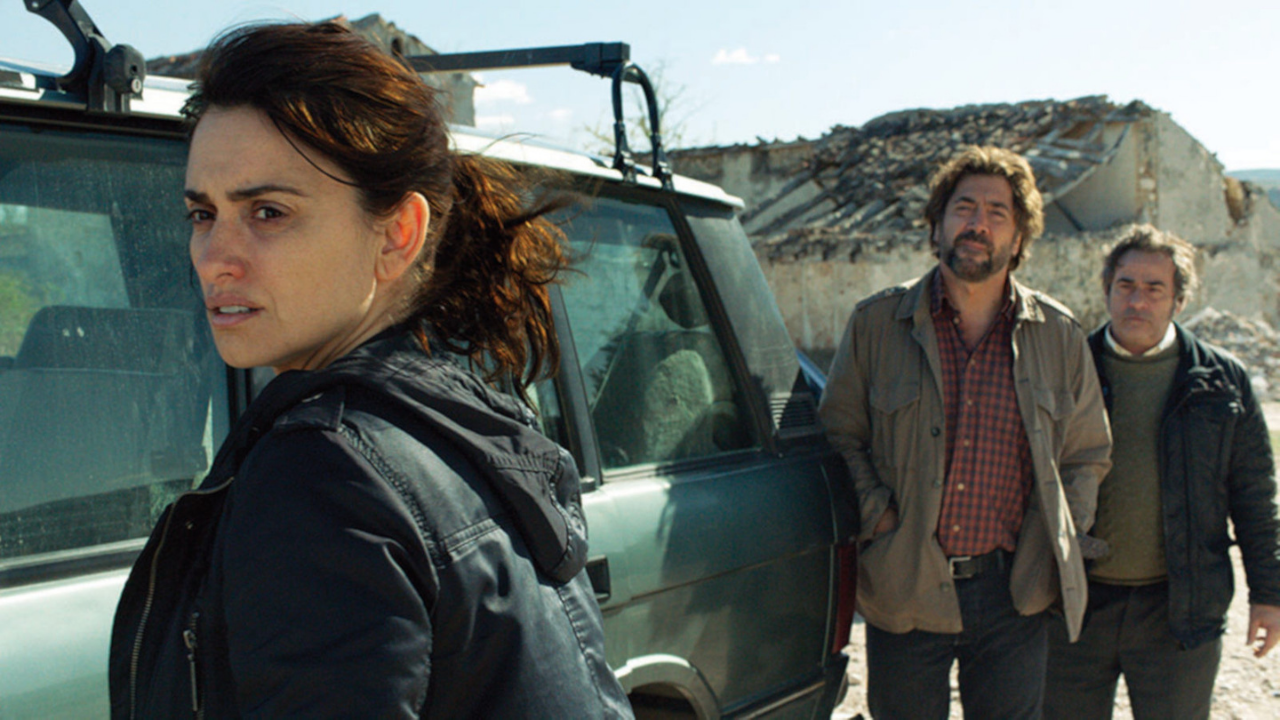
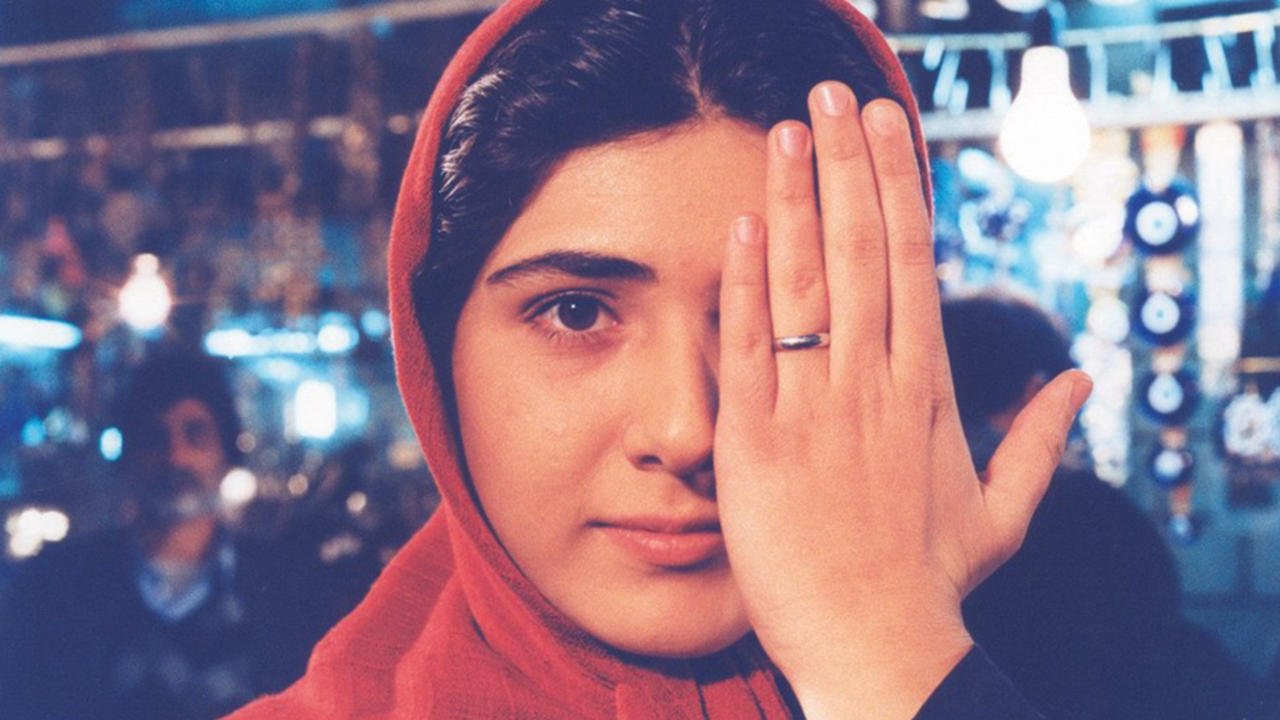
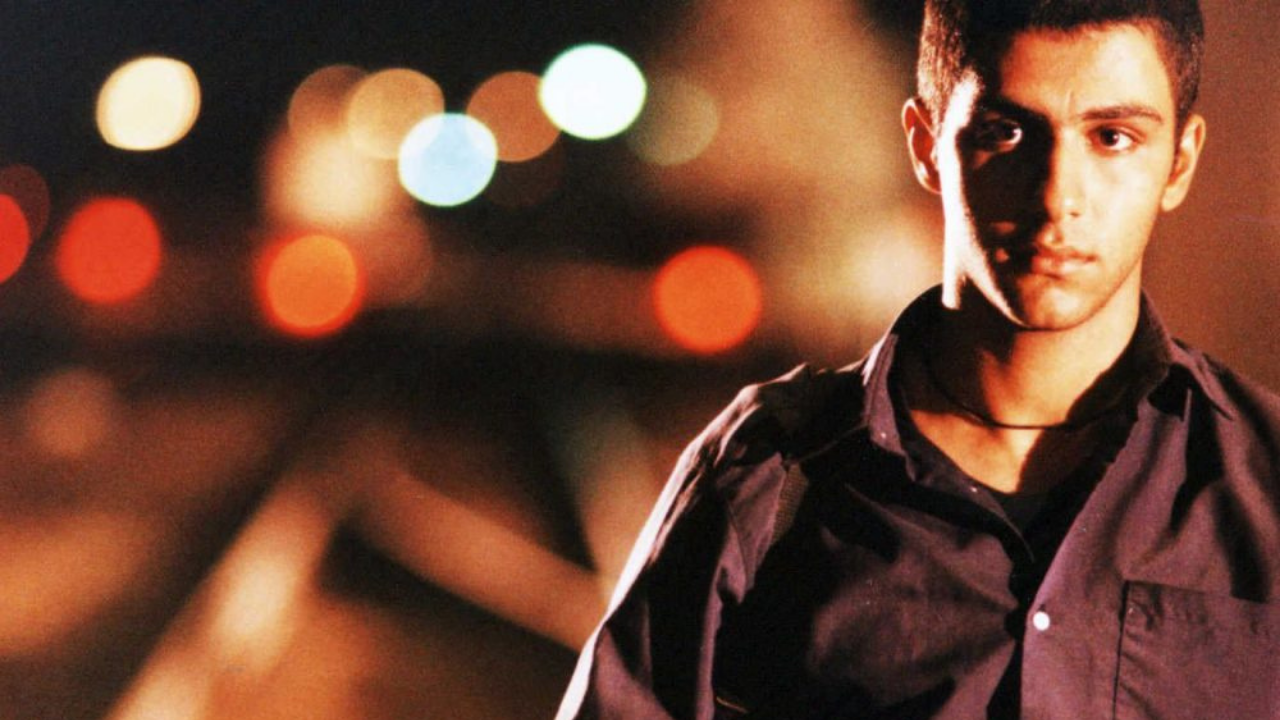
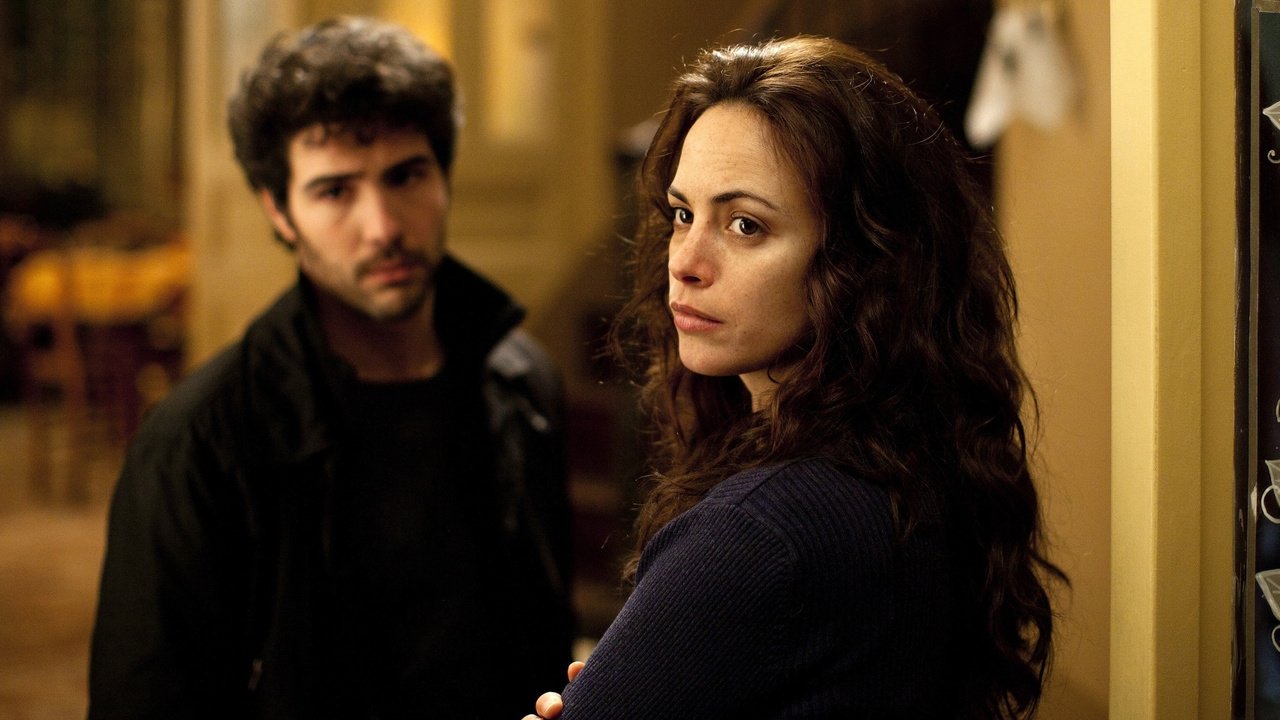
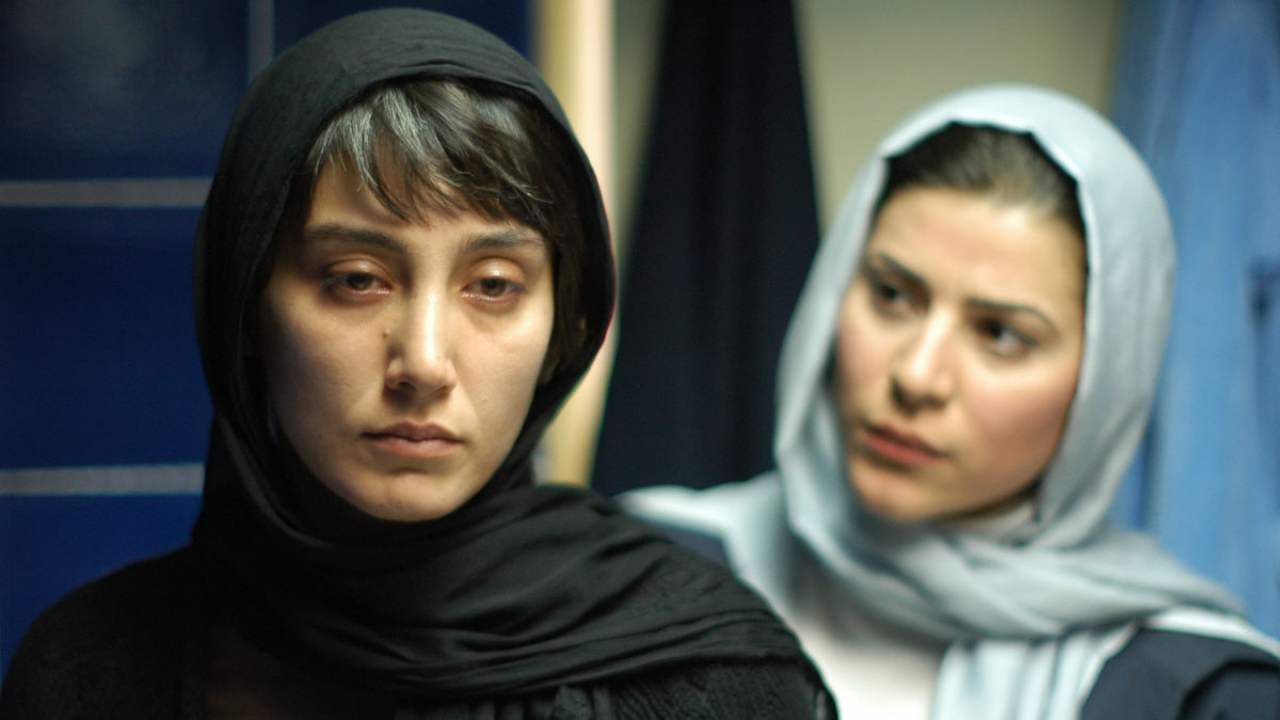
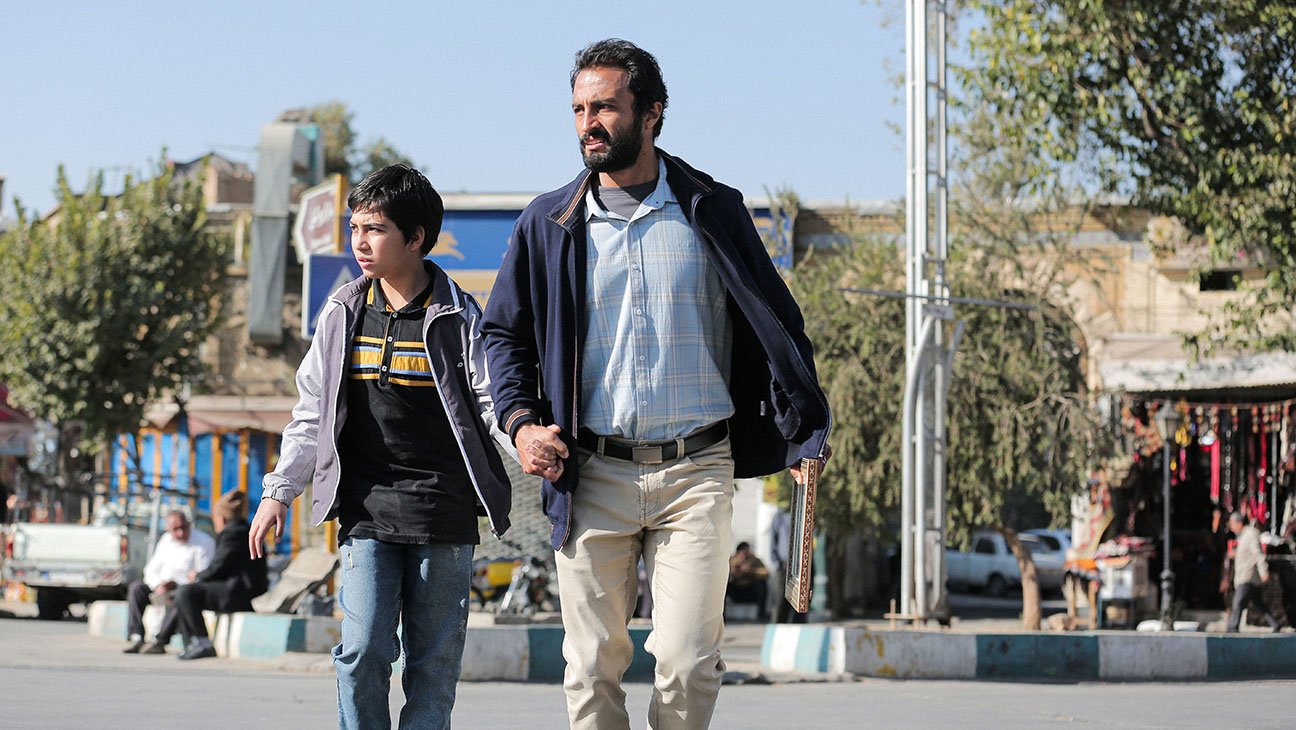
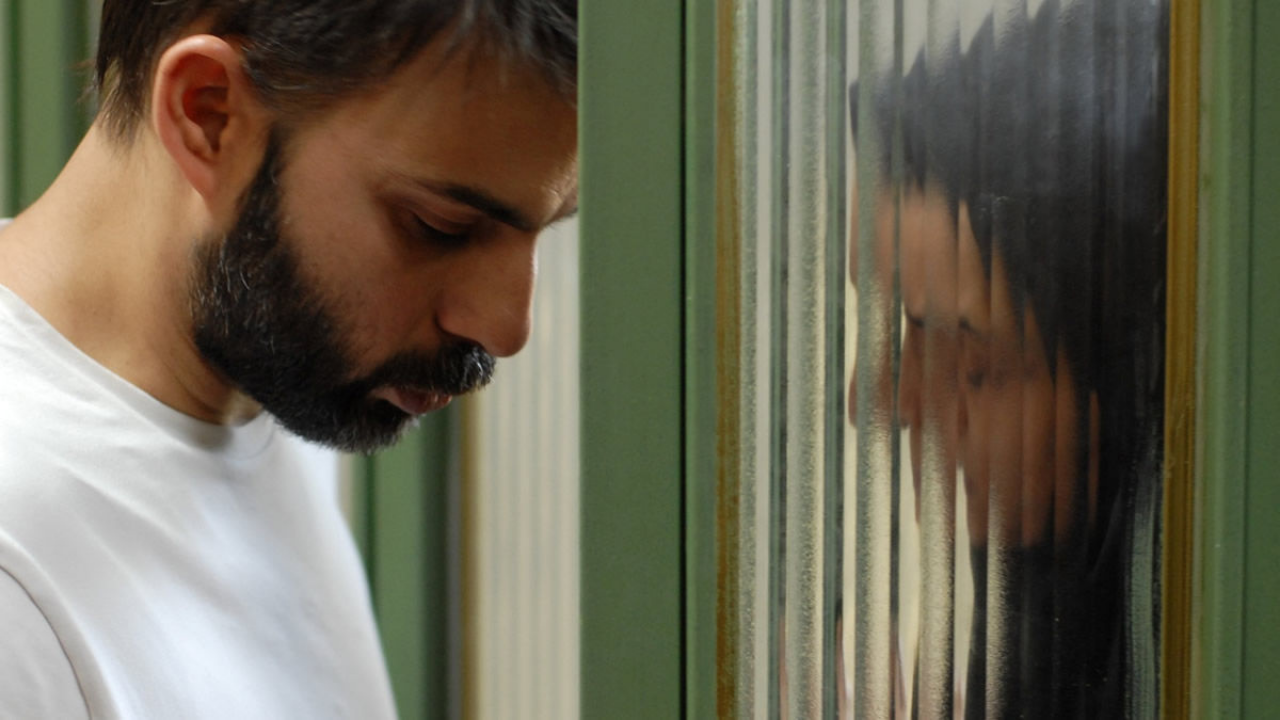
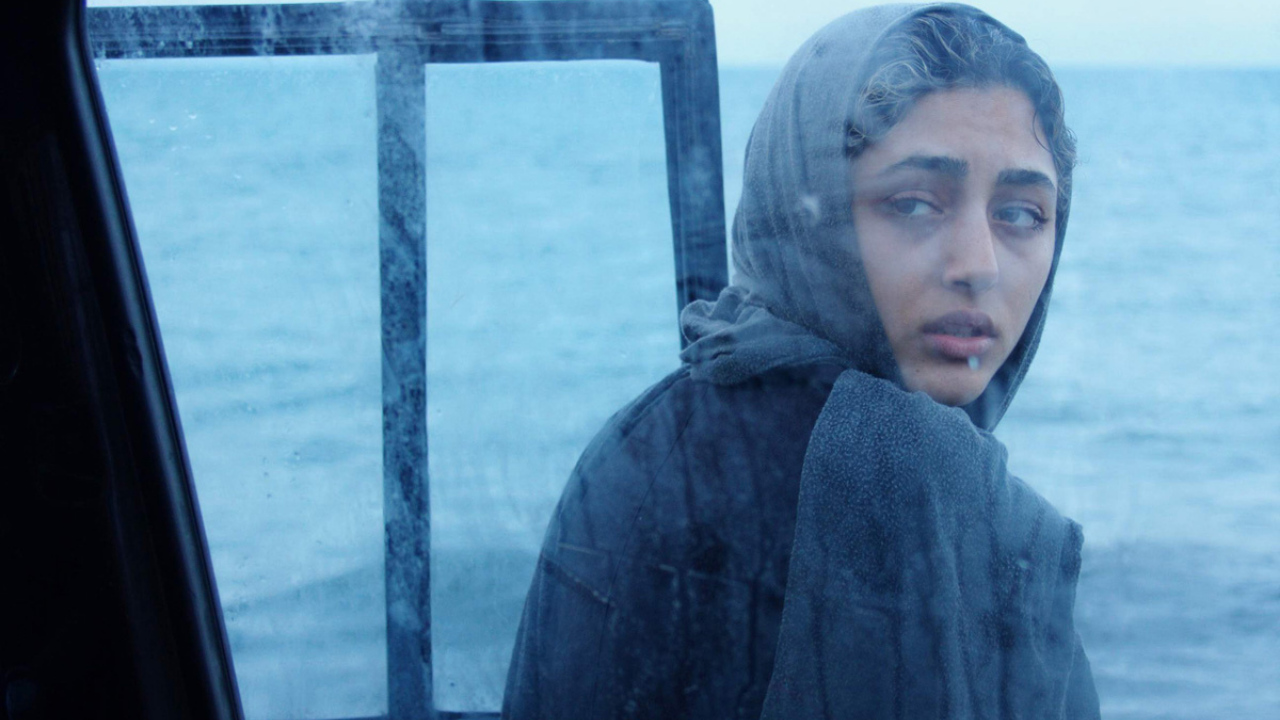
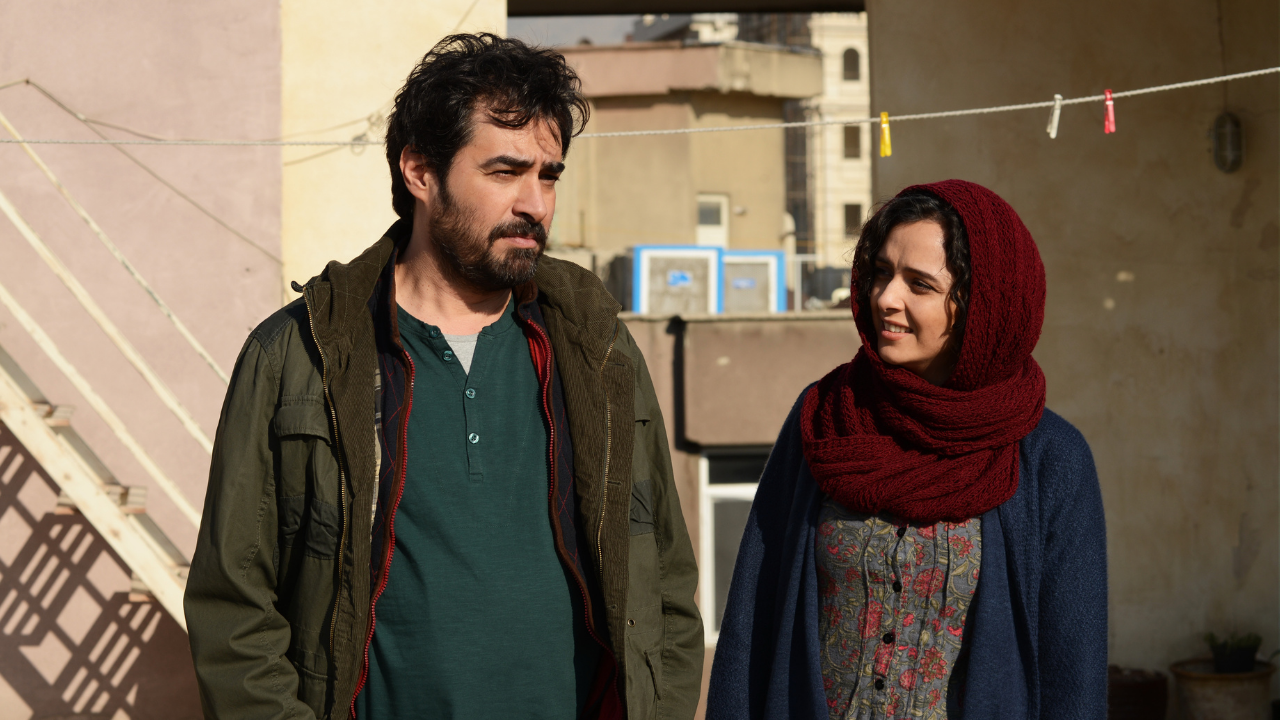
![Tigre [2017]: ‘TIFF’ Review](https://79468c92.delivery.rocketcdn.me/wp-content/uploads/2017/09/TIFF_HIGH_ON_FILM_tigre_01-768x384.jpg)
![99 Homes [2015] : The Men Who Knock](https://79468c92.delivery.rocketcdn.me/wp-content/uploads/2016/01/99homes.jpg)
![Breathe [2015] Review: A Devastating Inspection of Emotional Turmoil!](https://79468c92.delivery.rocketcdn.me/wp-content/uploads/2015/11/maxresdefault2.jpg)

